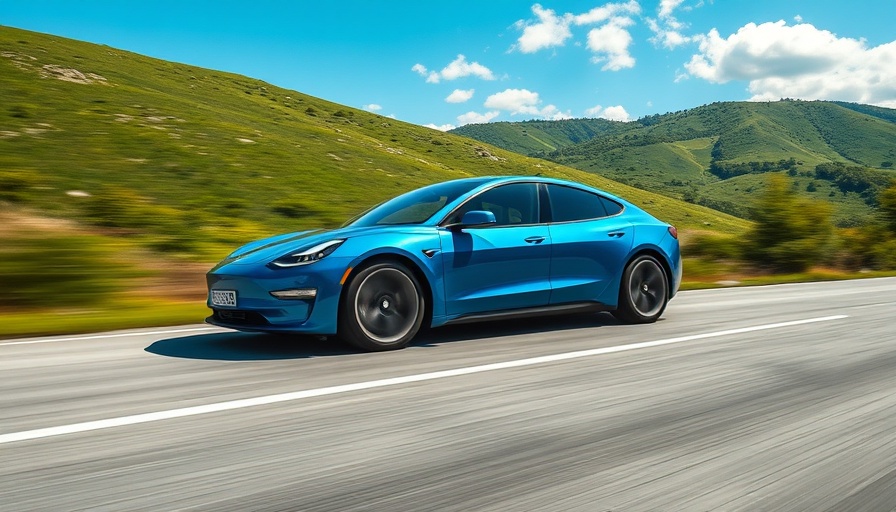
California's Electric Vehicle Charging Revolution
As the state of California blazes forward in its quest for sustainable energy, a notable shift has occurred: it now boasts more electric vehicle (EV) chargers than traditional gas pumps. With over 178,000 charging stations compared to about 120,000 gas stations, California's commitment embodies a significant shift towards an eco-friendlier automotive landscape, as emphasized by Governor Gavin Newsom. Aiming for a clean car future, California is giving drivers greater options and accessibility in charging their vehicles.
Understanding the Charging Infrastructure
The statistics surrounding California's EV charging network are promising yet nuanced. Of the total chargers available, a substantial 52.8% are private chargers, available at places like apartment complexes and offices, while only 47.2% are public, open for all users. This setup leads to a critical question: how easily can drivers access these charging points?
Moreover, the pace of charging varies significantly. Currently, a staggering 91% of California's chargers fall under Level 2, which generally delivers 6–11 kilowatts of power, making them suitable for longer stops rather than quick refills. Conversely, Level 3 chargers, often regarded as fast chargers, number 16,371 and allow for a much quicker charging experience, enabling drivers to get back on the road in under an hour.
Future Predictions for EV Growth
Looking ahead, the EV landscape in California appears to be bright thanks to ongoing investments in infrastructure. Recent state initiatives, including a $1.4 billion investment forecasted for 2024, will further bolster EV and zero-emission vehicle networks, enhancing not just the quantity but also the accessibility of charging stations, especially in areas that lack adequate facilities.
Fueling Your Journey: The Cost Factor
Another appealing aspect of going electric in California comes down to cost. With gasoline prices soaring at around $4.647 per gallon compared to the national average of $3.128, the choice to go electric becomes even clearer. Charging an EV in California averages at $0.357 per kilowatt-hour, which, while slightly higher than the national average, provides a considerable incentive in comparison to traditional fuel costs.
Actionable Insights for Drivers
As California continues to expand its EV infrastructure, potential drivers should consider several factors when making the transition to an electric vehicle. Researching charging options, especially in regions lacking robust public charging stations, is crucial. Understanding your charging needs and where to find reliable public chargers can ease anxiety about driving a fully electric vehicle.
In conclusion, with greater investment in electric vehicle facilities and growing public awareness, California is paving the way for a sustainable automotive culture. By tracking the improvements in charging infrastructure and understanding the economic benefits, consumers can confidently step into the future of driving.
 Add Row
Add Row  Add
Add 




 Add Row
Add Row  Add
Add 

Write A Comment